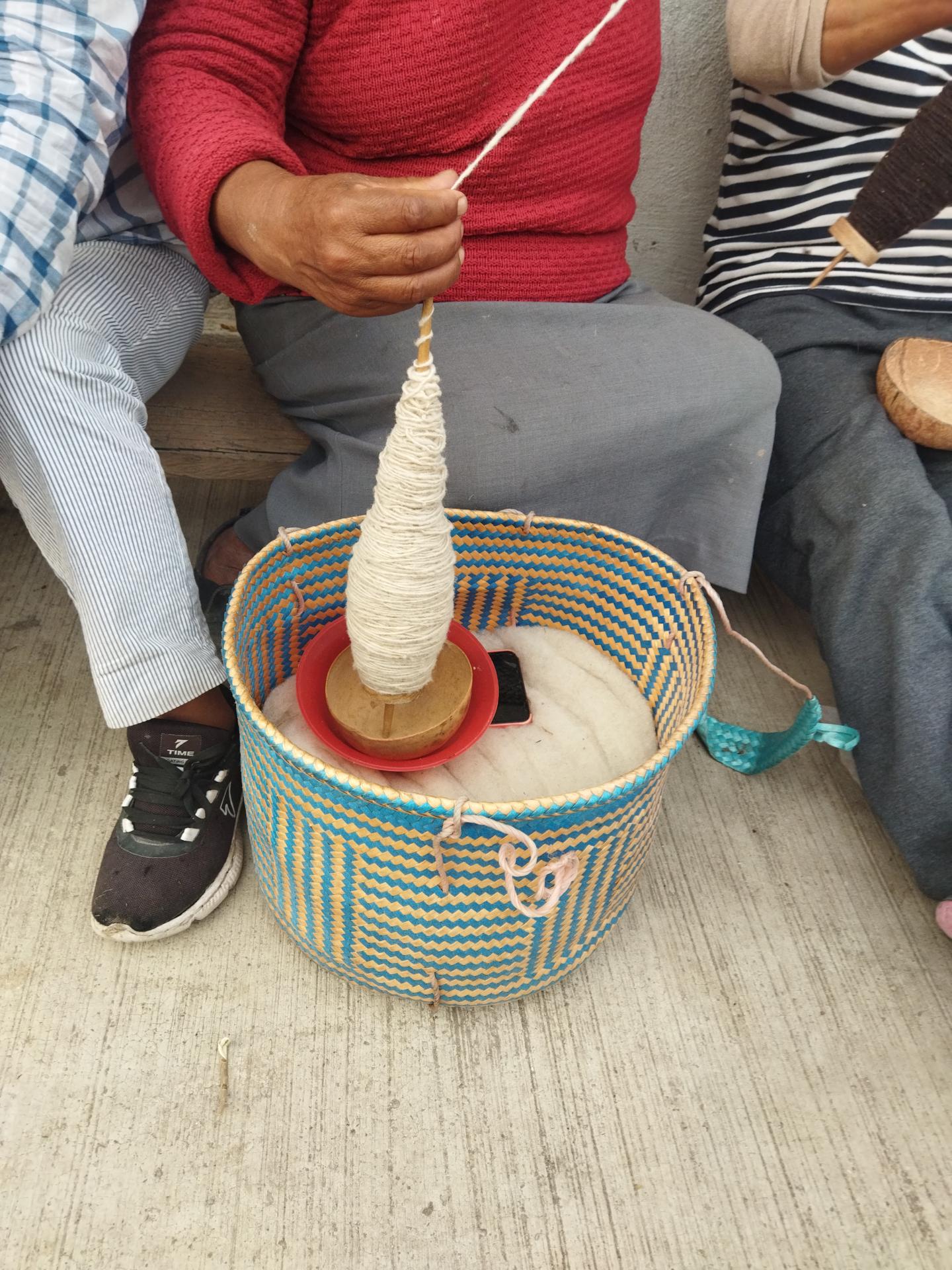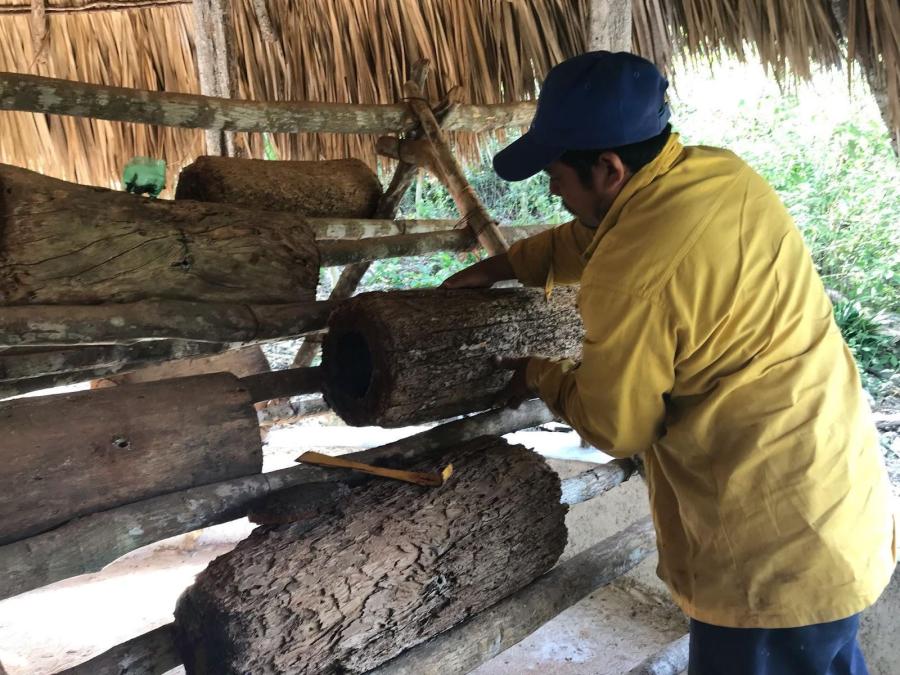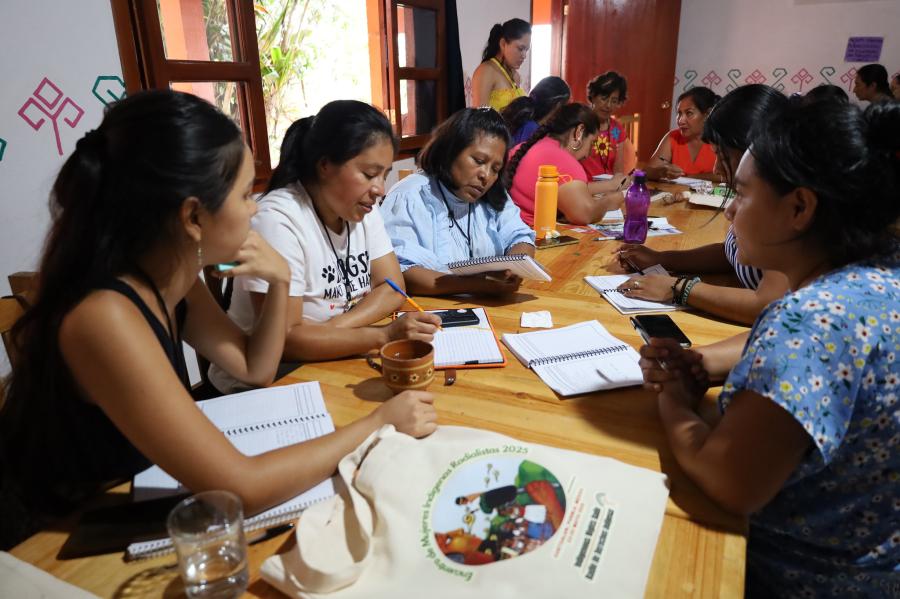
By CS Staff
Almost three years after having to flee their territory, a group of more than 20 Mixtec families remains in a shelter in the city of Tlaxiaco, Mexico, in precarious conditions, without enough space to live, essential services, medical care, and, above all, without justice or hope of being able to return home. These are the families displaced by violence in the municipality of Atatlahuca, in the Ñuu Savi (Mixteca) region, which has been suffering as a result of a conflict over its forest and territory since 2021. In May 2024, Cultural Survival spoke with some of the displaced people to learn about their stories in their own words.
In October 2021, an armed group had closed the roads of Ndoyonoyuji, one of the communities in the municipality of Atatlahuca. A local woman remembers what happened that day, "They had their faces covered with balaclavas. They told us to go out and burn the house. How can we burn our own house? We spent the night in the forest, listening to them breaking doors and burning houses. They stole our animals and household goods." The result was 2 people dead, 5 missing, and more than 150 houses burned in 3 different communities: Ndoyonoyuji, Mier y Terán, and Guerrero Grande.
At the beginning there were more than 300 people in the shelter. They say that most of the inhabitants of Guerrero Grande were able to return to their community. Those from Mier y Terán have remained united, which is why they were able to return as well. Most of those currently in the shelter are from Ndoyonoyuji. Others had to emigrate to the cities to support themselves and feel safer. There is also another displaced group in the municipal capital of Atatlahuca.
Like other conflicts in the Mixteca, it started over a land dispute between the three affected communities and the municipality, with heavy involvement of economic interests in the forest: logging for wood and the sale of a mushroom that grows in this territory and is highly sought after outside the country. According to those interviewed, there are currently at least six sawmills in the municipality. The community blames the interference on a local political organization that, together with local actors, the community says has divided them.

The consequences of this conflict have been very hard for those who remain in the shelter, from children, young people, adults, and the elderly. They are far from the way of life they had in their communities. "We had our plot of land, houses, and animals. We lost everything in this conflict. Our children had become accustomed to going to the mountains, there was no danger because everyone knew each other. We sowed the land, we had food, we had water, and from there, we could feed ourselves. Here, we have to buy everything, even firewood and water,” says a local.
The only thing the displaced ask for now is justice so they can return to their homes. They need to recover their land and rebuild their houses, but they think justice for the murders, disappearances, and burning of houses is a priority. They share that although the Oaxaca government has told them they can now return, they are not guaranteed safety. "We do not feel safe. For that, we need justice and reparation for the damages, a dialogue, and a signed agreement."
They have held dialogues with the Mexican government, but there has been no progress despite being promised a solution. According to the community, "All the investigation files are still in their initial phase, as in 2021, and nothing is known about the missing. No houses have been repaired.” Those responsible are still free with the protection of the levels of government. At first, they did not recognize that there were dead and missing people, but in the burned houses, they found bone remains of our companions who were burned there. So far, there is no information on the results of the investigation. “At first, we received support to stay in the shelter, but that ended, and we currently have many needs, including food and personal hygiene products, since it is not so easy for us to find stable jobs in the city. We also denounce that the Guerrero Grande and Mier y Teran communities have not received the federal support to which they are entitled since 2020. After almost three years, we continue to demand justice and reparation for the damages, as well as imprisonment for those responsible," a local concludes.



